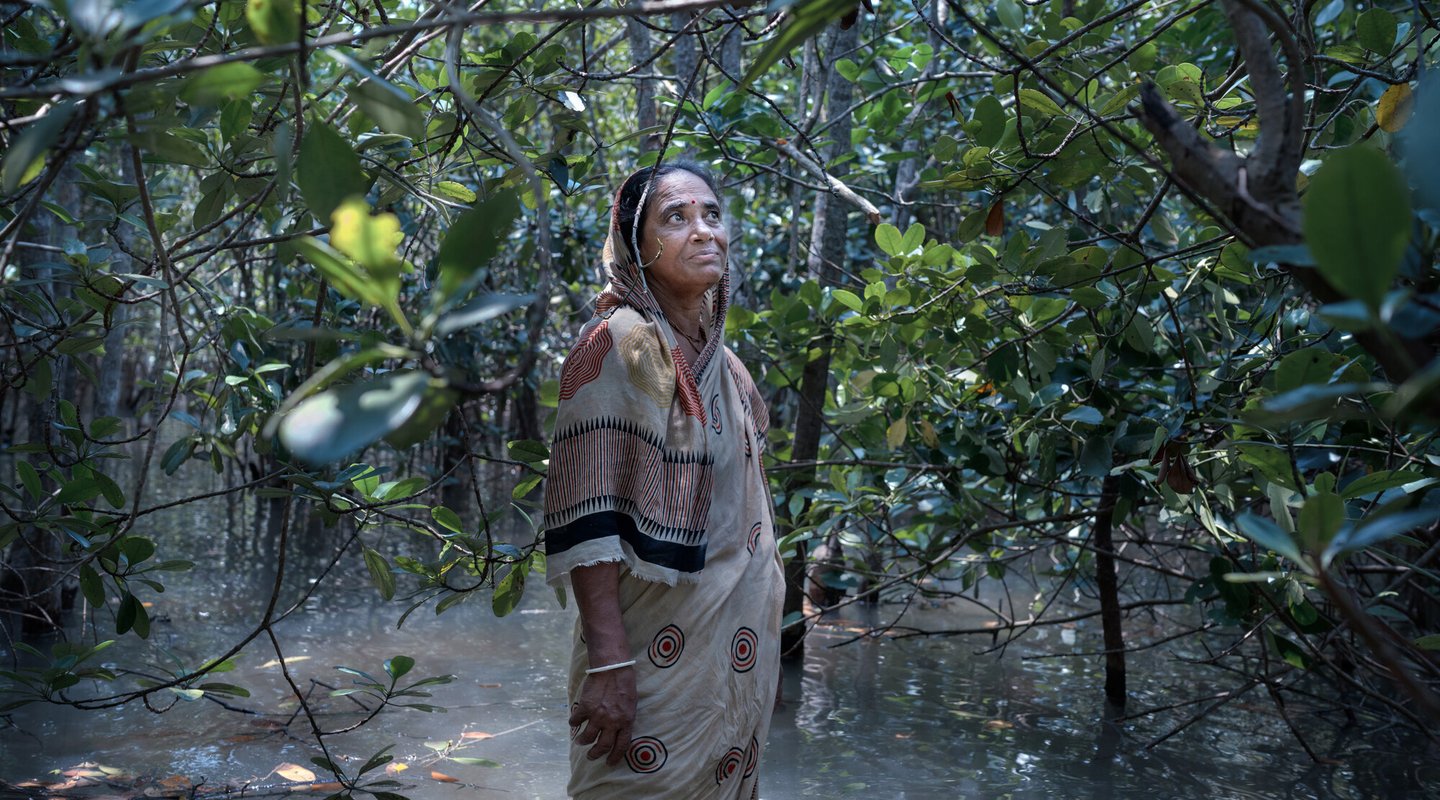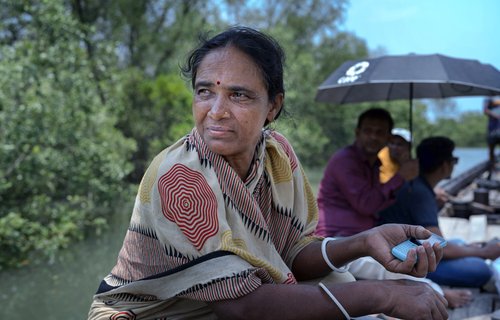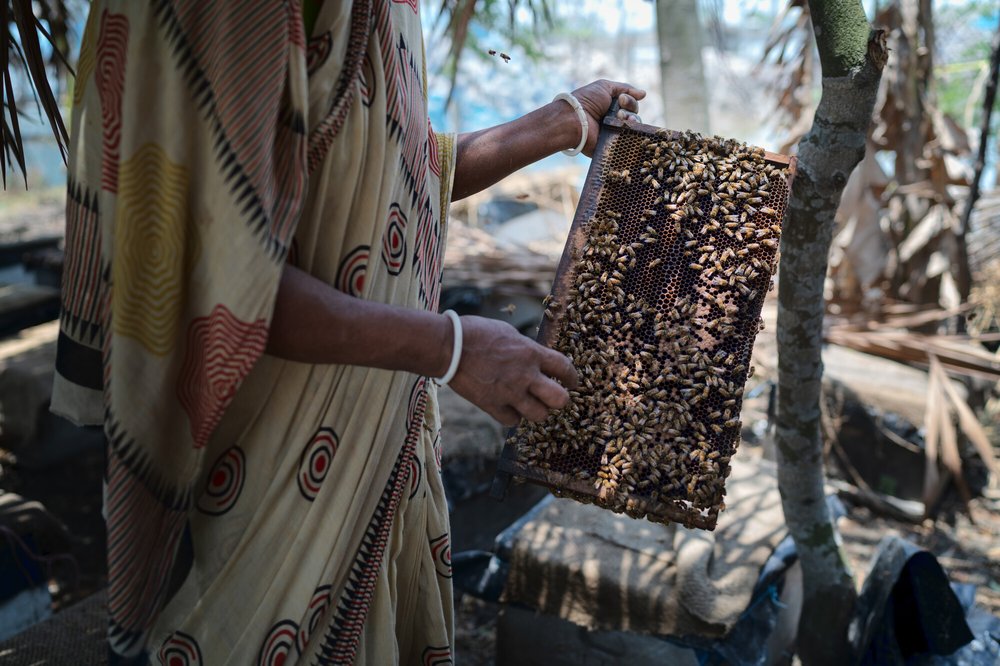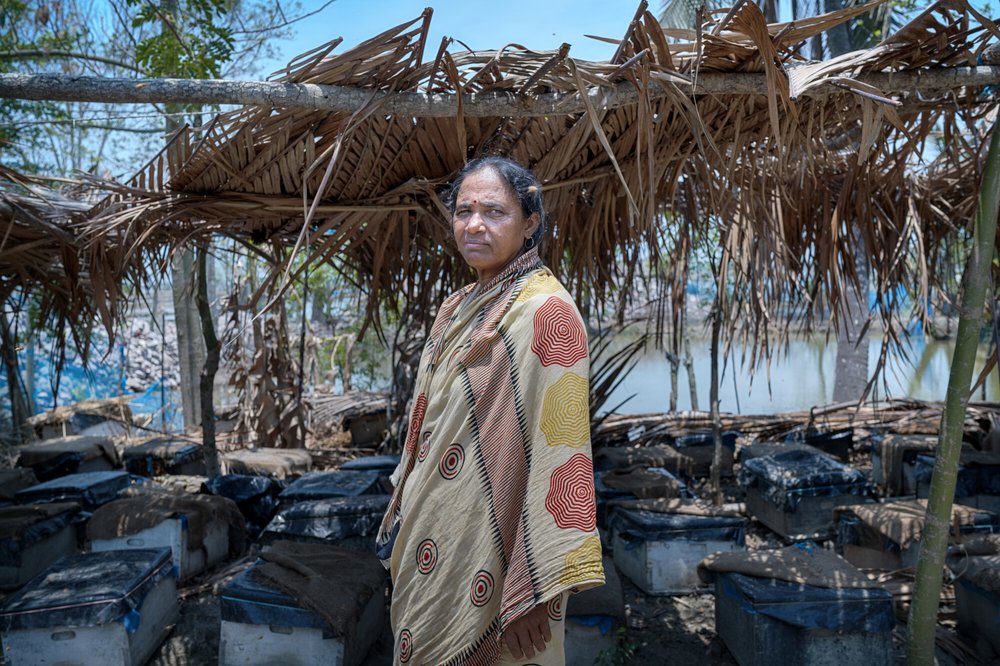
Koruna in the Sundarbans mangroves. Credit: Fabeha Monir/Oxfam
Koruna is the only female honey farmer in Bangladesh and collects honey with her team in Sundarbans, the largest mangrove forest in the world.
The only female honey farmer in Bangladesh

"I feel very proud that I came from a remote place and was recognised as the only proud female honey farmer in Bangladesh."
“Big things can be achieved from this business.”
Koruna
Climate change in Bangladesh
The coast of Bangladesh is particularly vulnerable to the impacts of climate change – like an increase in extreme weather events and sea level rise – and is a critical region for the nation’s development.
These issues are made worse by natural disasters such as the recent floods occurring throughout the country.
The country is urbanising its rural areas and developing hundreds of economic zones, which will require an additional supply of water and energy as well as greater connectivity through transportation.
Bangladesh aims to harness the benefits of the ocean, or the “blue economy”, to achieve these rapid development goals. As a result, coastal communities are confronted with potential environmental and social impacts from large infrastructure developments, as well as loss and damage from climate change.
Practices affected by climate change
"The people from the forest department have become so strict. Cutting trees for woods has stopped already. Due to the cessation of logging, the honey is increasing. It has been the highest this time in three years.
Honey is increasing because the people from the forest department are guarding Sundarbans strictly. It is increasing because cutting trees has stopped and more trees are growing.
Now the number of honey collectors has increased. The number of honey collectors in Sundarbans is so high that if one person collects honey from a place with smoke, another person will collect honey from the same place a week later.
Honeybees have become angry from this. When people blow smoke in the honeycombs all the time the honey bees become anxious. They will be anxious if they have to leave their homes all the time."
Koruna with her beehives. Credit: Fabeha Monir/Oxfam

Koruna with her beehives
Koruna's Business
"Brothers from the Community Development Centre [an Oxfam partner] office tried to find out if any female honey farmers from the Sundarbans cultivated honey. Then they came to know about me, and they invited me to a meeting and I went there.
I attended a 3 day training at the boot camp in Bagerhat. I learned green business which is not harmful to the environment. Environment-friendly business. For example, plastic is harmful to the environment.
We discussed how to prevent the things which harm the environment and the benefits of not using these prohibited products for the environment.
I got training on marketing and pricing of the product and how to sell the product in a stall. I got to know about many things."
Social Change
"It is a profitable and honourable business. I am the only woman honey farmer in the whole of Bangladesh and people recognise me by name. This is a matter of huge pride for me and if I did not come to this business, I would not have found this place.
I have built a house here from this business. It is wholly made from the money I get from my business. I have also made a house for my husband at his place. My daughter and her husband work with me in this business.
We fulfil our needs with the money we get from the business. This is my biggest achievement."
Koruna in front of her beehives. Fabeha Monir/Oxfam

Koruna in front of her honey farm